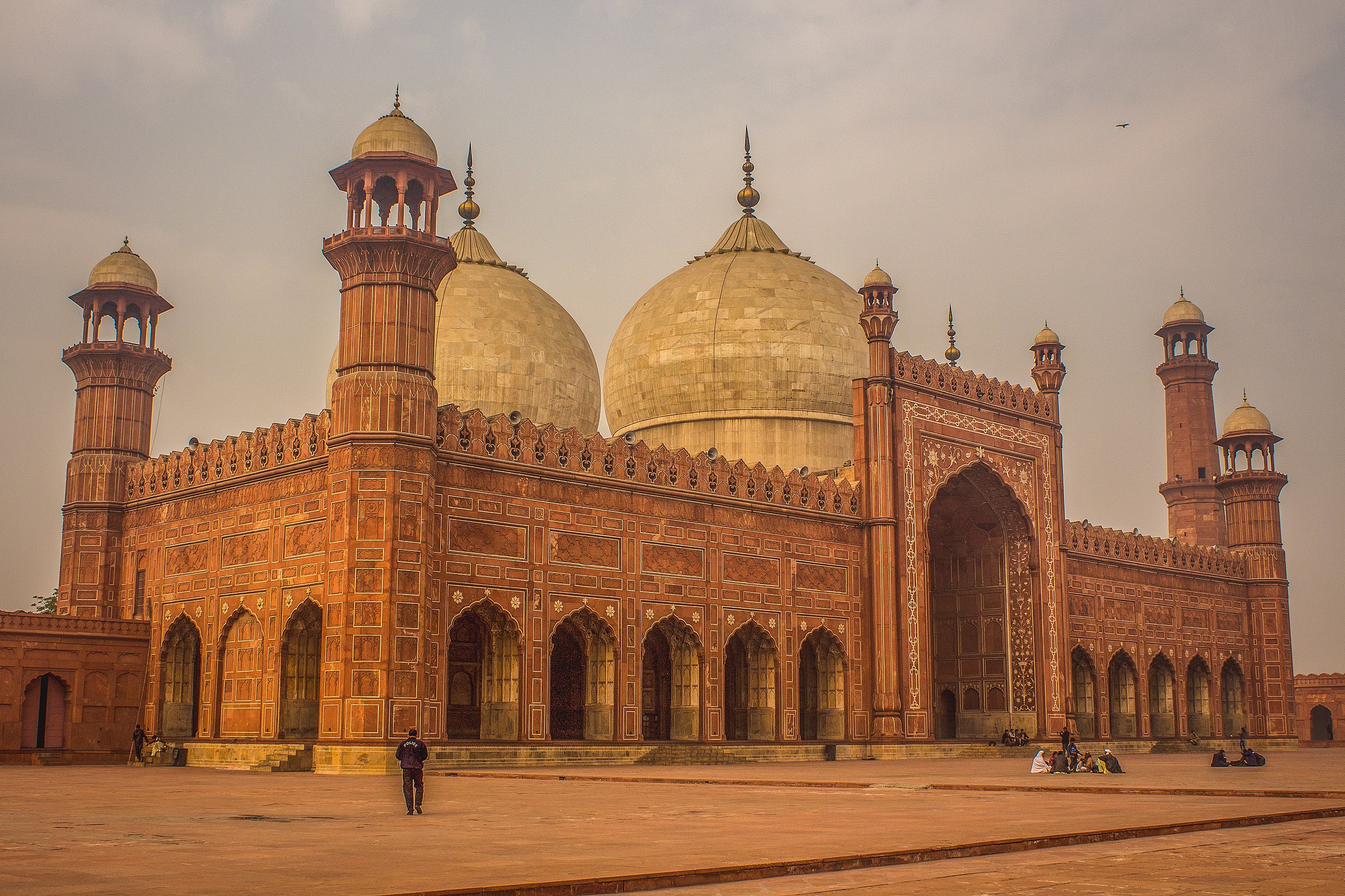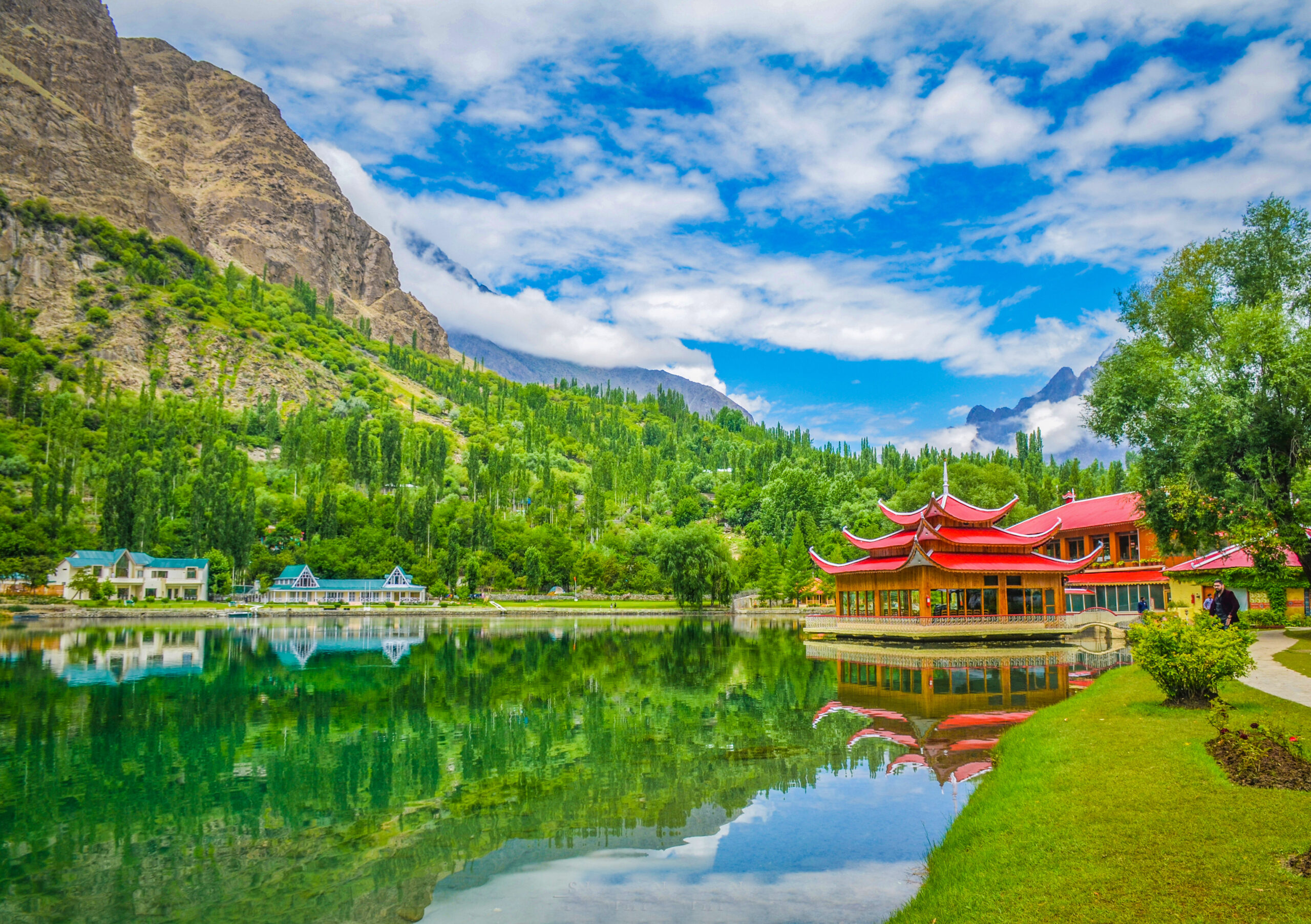Badshahi Mosque

Badshahi Mosque, Lahore Pakistan
Introduction
In the heart of Lahore, Pakistan, stands an architectural masterpiece that not only captures the essence of Mughal grandeur but also represents the rich cultural heritage of the region – the Badshahi Mosque. This iconic structure is not just a place of worship; it’s a testament to the artistic and engineering brilliance of the Mughal era. Join us on a journey to explore the grandeur, history, and significance of the Badshahi Mosque.
A Glimpse into History
The Badshahi Mosque, which means the “Imperial Mosque,” was built during the reign of the Mughal Emperor Aurangzeb in 1671. Its construction was a symbol of the zenith of the Mughal Empire’s architectural prowess and ambition. This mosque was designed to be one of the largest in the world, a title it held for over 300 years.
Architectural Splendor
One of the most striking features of the Badshahi Mosque is its impressive red sandstone and marble architecture. The façade of the mosque is adorned with intricate calligraphy and decorative motifs that showcase the craftsmanship of Mughal artisans. Its massive central dome and four towering minarets that punctuate the skyline are awe-inspiring, reaching heights of 54 meters (177 feet).

Courtyard and Capacity
The mosque’s vast courtyard is an expansive open area that can accommodate over 55,000 worshippers. This space was designed to foster a sense of community and unity among the faithful. It is said that the mosque was purposely built larger than the Jama Masjid in Delhi, a structure built by Aurangzeb’s father, Shah Jahan, to symbolize the superiority of his reign.
Preservation and Recognition
Over the centuries, the Badshahi Mosque has witnessed the ebb and flow of history. It survived the British colonial era and the creation of Pakistan in 1947. In 1993, the mosque underwent significant restoration efforts to preserve its original glory, and it was declared a UNESCO World Heritage Site, recognizing its cultural significance and architectural importance.
Visiting the Badshahi Mosque
Today, the Badshahi Mosque is not only a place of worship but also a prominent tourist attraction. Visitors can marvel at the intricate design, explore the spacious courtyard, and ascend the minarets for panoramic views of Lahore. It’s a place where history, art, and spirituality converge.

Conclusion
The Badshahi Mosque stands not only as a testament to Mughal opulence but also as a symbol of the enduring spirit of Lahore. It represents a time when art, culture, and faith thrived in harmony. As you stand before this architectural marvel, you can’t help but feel a deep connection to the past and an appreciation for the artistic genius of the Mughal era. The Badshahi Mosque in Lahore is more than just a place of worship; it’s a living testament to the grandeur and splendor of Pakistan’s history and culture.









